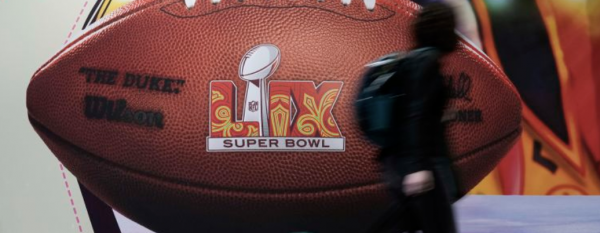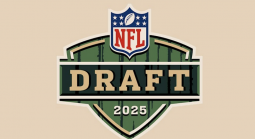Super Bowl LIX By The Numbers & 2025’s Best & Worst Cities for Football Fans – WalletHub Reports
With Super Bowl LIX just days away, the personal-finance website WalletHub today released its Super Bowl Fun Facts – The Big Game By The Numbers infographic together with its report on 2025’s Best & Worst Cities for Football Fans, which includes such facts as your NFL franchise’s estimated value and the average ticket price for an NFL game, as well as expert commentary.

To determine the best places for enjoying America’s favorite sport, WalletHub compared 250 U.S. cities with at least one college or professional football team based on 21 key metrics. The data set ranges from the number of NFL and college football teams to stadium capacity to fan engagement.
Make sure to check out the infographic for cool stats about the biggest sporting event of the year. Here are some highlights from each report:
| Best Cities for Football Fans | Worst Cities for Football Fans |
| 1. Pittsburgh, PA | T-240. Louisville, KY |
| 2. Dallas, TX | T-240. Charleston, SC |
| 3. Green Bay, WI | 242. Fort Collins, CO |
| 4. Boston, MA | 243. Pine Bluff, AR |
| 5. Kansas City, MO | 244. Waco, TX |
| 6. New York, NY | 245. Bloomington, IN |
| 7. Los Angeles, CA | 246. College Station, TX |
| 8. San Francisco, CA | 247. Evanston, IL |
| 9. New Orleans, LA | 248. Dover, DE |
| 10. Miami, FL | 249. Easton, MA |
| 11. Philadelphia, PA | 250. Lincoln, NE |
To view the full report and your city’s rank, please visit:
https://wallethub.com/edu/
“Living in one of the best football cities means much more than attending games and watching your hometown team on TV every weekend in the fall. Faithfully following your team on social media, spending big on tickets and merchandise, and taking part in local traditions are just some of the factors that make the best football cities stand out. Having a football team with a winning culture and multiple championships doesn’t hurt, either.”
–
“The best city for football fans is Pittsburgh, thanks to the larger-than-life presence of its NFL franchise, the Steelers. The Steelers are tied with the New England Patriots for the most Super Bowl victories with six, including its most recent triumph in the 2008-2009 season. Pittsburgh has some of the most loyal and most engaged football fans in the country, too. The city’s football fans can watch games at the 68,400-seat Acrisure Stadium, which is also home to its hometown NCAA football team, the University of Pittsburgh Panthers.”
- Chip Lupo, WalletHub Analyst
Super Bowl LIX By The Numbers
- $7,584: The average cost of a ticket to the past five Super Bowls.
- $6,733: Lowest price of a Super Bowl LIX ticket on the resale market just after the conference championships (14% decrease from 2024).
- $500M+: Estimated economic impact for the Louisiana economy in 2025.
- 17.6M: Americans plan to watch the game at a bar or restaurant.
- 192%: 20-year increase in the cost of a 30-second Super Bowl ad.
Expert Commentary
How can the game be adapted to better ensure the long-term health and safety of players?
“One of the primary challenges in professional football is balancing the sport’s inherent physicality with player safety. The physicality that drives fan interest and participation also increases the risk of serious injuries. Issues like concussions and Chronic Traumatic Encephalopathy (CTE) have drawn significant scrutiny, leading leagues like the NFL to invest heavily in safety measures such as advanced equipment, medical research, and recovery technologies. For example, the NFL mandates Guardian Caps – a soft, padded shell that reduces head impact – during training camp, though their use is optional during games. Similarly, the Canadian Football League (CFL) implements comparable policies. In addition to equipment innovations, rule changes like stricter penalties for helmet-to-helmet hits and improved post-retirement healthcare aim to protect players. These efforts not only enhance player welfare but also mitigate potential legal liabilities. However, the costs associated with these initiatives significantly increase operational expenses for teams and leagues.”
Maddie Herman, Ed.D. – Assistant Professor; Program Coordinator, Sport Management, Gwynedd Mercy University
“I see them improving equipment but with a sport like football it probably won't change much.”
Eric Stoller – Assistant Professor; Business Solutions Center Coordinator, The University of Findlay
What are some strategies for fans to enjoy watching football (at home, in a bar, at the stadium) without breaking the bank?
“Streaming Services: Evaluate your viewing preferences and choose services accordingly. Premium options like NFL Network or NFL Sunday Ticket offer comprehensive coverage but come at a higher cost. Alternatively, services like Peacock (Sunday Night Football) and Amazon Prime (Thursday Night Football) are cheaper but more limited. Some credit cards even provide cashback rewards on streaming subscriptions, adding a layer of affordability.
Stadium Tips: Attending a live game doesn’t have to break the bank. Look for last-minute ticket deals closer to game day, as teams often aim to fill seats. Review stadium food policies; some allow sealed water bottles and wrapped snacks, which can save on concessions. Alternatively, eat before heading to the game. For transportation, pre-purchase parking passes or consider public transit, which can save money and simplify post-game travel.”
Maddie Herman, Ed.D. – Assistant Professor; Program Coordinator, Sport Management, Gwynedd Mercy University
“Watching from home with friends is probably the most affordable way to watch games but with all the streaming services (and their rising costs). A strategy could be having different homes have different subscriptions to host watching the game that day.”
Eric Stoller – Assistant Professor; Business Solutions Center Coordinator, The University of Findlay
Is having a professional football team an economic drain or benefit for cities?
“The economic benefits of hosting a professional football team depend on various factors and stakeholders. Stadiums are often significant economic drivers, hosting large-scale events like the FIFA World Cup or College Football Playoffs that boost tourism and revenue. A compelling example is Atlanta’s Mercedes-Benz Stadium, home to the Falcons. Known for its low concession prices ($2 hot dogs, $5 beers), it has attracted families and significant events alike. Partially funded by a hotel tax, the stadium has created thousands of jobs and hosted high-profile events such as the Super Bowl and major concerts. These events bring economic gains through tourism, increased local spending, and international visibility. However, some argue that public funding for stadiums can burden taxpayers financially, sparking debate over their long-term value.”
Maddie Herman, Ed.D. – Assistant Professor; Program Coordinator, Sport Management, Gwynedd Mercy University
“Benefit with the amount of money and jobs a gameday brings into the facility, and surrounding area as well as the newer domes are hosting all different events (basketball, hockey, soccer, concerts, swimming, etc.)”
Eric Stoller – Assistant Professor; Business Solutions Center Coordinator, The University of Findlay
More From WalletHub
- Best Sports Cities
- Best Cities for College Basketball Fans
- Best & Worst Cities for Basketball Fans
- Best Cities for Hockey Fans
- Best Baseball Cities
- Best Cities for Soccer Fans
- Wallet Hub Special Contributor














